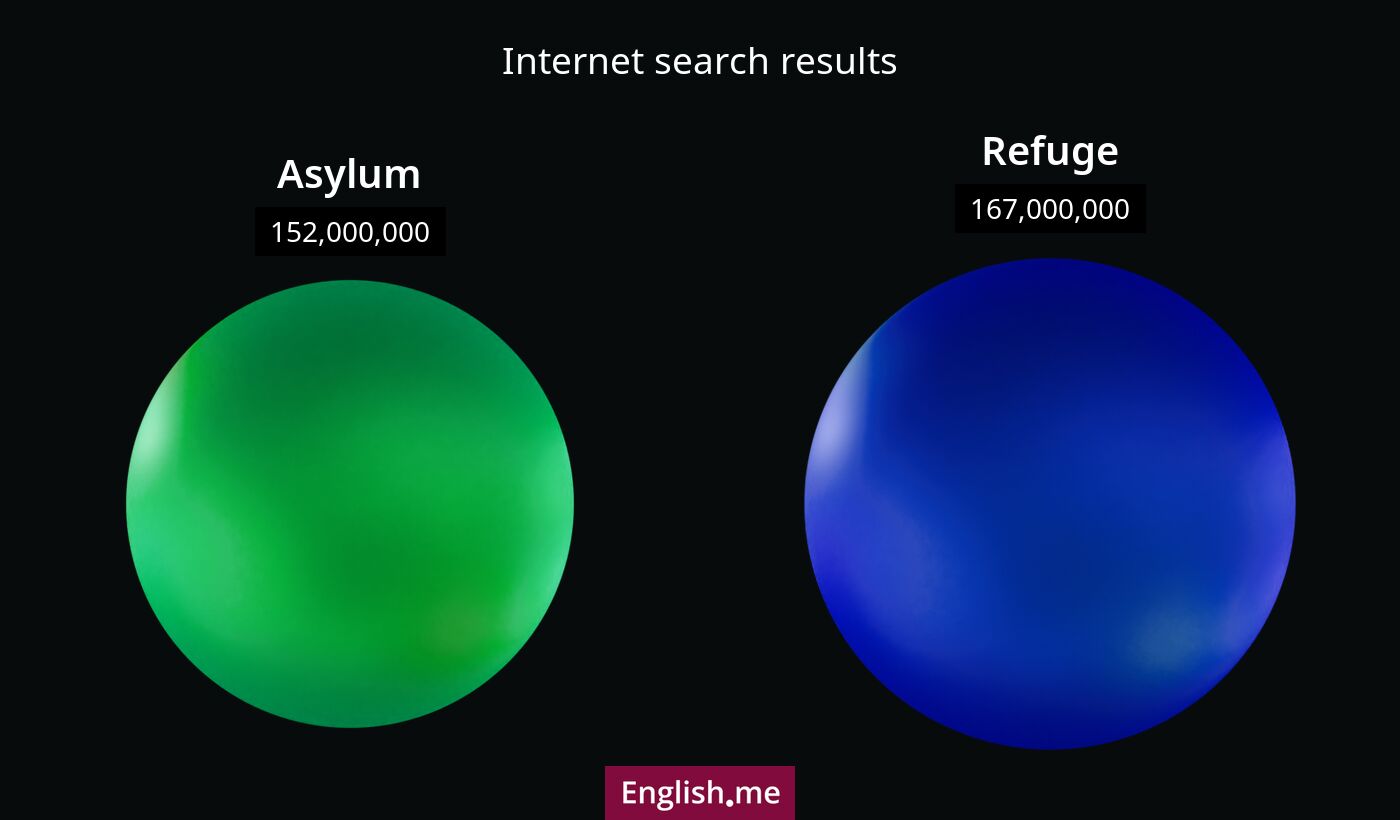Seeking shelter: comparing "asylum" and "refuge"
Reviewed and edited by  Anwar Kareem 09/10/2024, 01:59
Anwar Kareem 09/10/2024, 01:59
English.me team member

 What is similar?
What is similar?
Both "asylum" and "refuge" refer to places or conditions of shelter or protection from danger or hardship.
 What is different?
What is different?
Asylum often implies a formal or legal protection, particularly for individuals fleeing persecution or danger, as reflected in legal and international contexts. Refuge is a broader term for a safe place or condition, and can be used in more general contexts.
 Which one is more common?
Which one is more common?

 Examples of usage
Examples of usage
Asylum- The political dissident sought asylum in a foreign country.
- The asylum offered protection to refugees fleeing the war-torn region.
- She was granted asylum after proving her life was in danger due to her activism.
- The hikers found refuge from the storm in a small cabin.
- The wildlife sanctuary provides a refuge for endangered species.
- During the chaos, they sought refuge in a nearby church.

 English
English español
español française
française italiano
italiano deutsche
deutsche 日本語
日本語 polski
polski česky
česky svenska
svenska Türkçe
Türkçe Nederlands
Nederlands